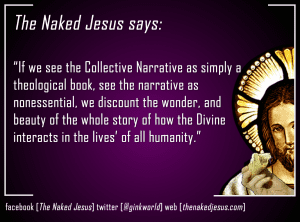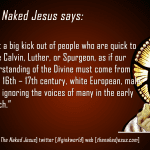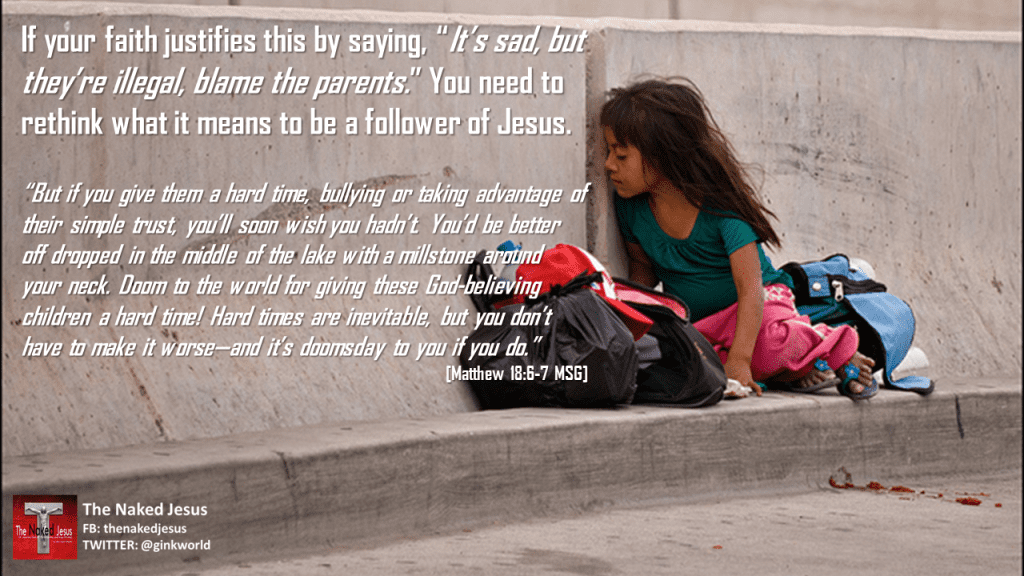
Recently, during one of my late nights get lost in Facebook, you know, reading about what people made for dinner, or how funny some cats are, I came across a rather interesting post in a group I belong to. I’ll admit, this is not my favorite group on Facebook. Ever since the founder decided he didn’t have the time to run the group, he passed it over to others and the conversations have gotten rather ‘interesting’ for me; but I digress….
One person made, what I believe, is a very good point. She directed her comment to Preachers – you know, people who point at you from the front and make you feel like crap as you are walking out the door, wondering why you take it – she wrote, “Avoid being a theologian from the pulpit. Be a human. Be vulnerable. Be real.” She asked for Preacher to “tell lots of personal stories.” I so agree – Stories, living the Narrative of Hope, is important – so, sharing with others how you struggle with the Narrative, the story of the Divine, is so very important in how we share the Hope. But, so many found her suggestion insulting, and even ‘not scriptural.’ As one individual put it, “stories can bring us into unhinged emotion and take us into experience separated from thought,” and all I could think of was ‘How cool would that be, we need unhinged emotions in our lives.’ Because, you see, I believe stories are essential. The part that hurts my heart is that many don’t, one commented, “Stories are not essential… they are one of the tools in a tool chest. There are many of these tools that people use, but calling it essential goes against Jesus’ own example (ex. Sermon on the Mount).” [I will be addressing the idea of the ‘Sermon on the Mount in a bit]. For me, any theology should be placed into the story.
What confused me the most is that in all the dialogs surrounding the non-importance of story, no one realized the authors of the individual narratives of Matthew, Mark, Luke, John, and Acts are sharing the reality of the life and ministry of Jesus in the form of a story; so, how can story not be essential?
Let me address the point that, as one says, “Jesus gave pure theology in the Sermon on the Mount, which is by most considered the greatest sermon ever preached.” WHAT? Who considers it the ‘greatest sermon ever preached’? More importantly, why is it called a ‘sermon’? What ‘pure theology’? So many questions, so many. Here are what I find as some realities of the ‘Sermon on the Mount.’
Let’s keep in mind, at no place in ‘scripture’ is there anything called “The Sermon on the Mount” – NO PLACE. the title “Sermon on the Mount” is an editorial edition, and addition, it is not part of what many call ‘scripture’ [I use the term “the Collective Narrative” – because it is all the story of how the Divine interacts with humanity]. It’s like when people say “The Lord’s Prayer” – it’s just not there. When Jesus was speaking, it was not a sermon [like when Jesus taught us how to pray, it was not a ‘prayer,’ it was an outline]. Notice that the entire section in Matthew’s Narrative [5] of the life and ministry of Jesus, it says, “Now when Jesus saw the crowds, he went up on a mountainside and sat down. His disciples came to him, and he began to teach them.” – meaning, it was a conversation between Jesus and his disciples – not a ‘sermon.’
If we see the Collective Narrative as simply a theological book, see the narrative as nonessential, we discount the wonder, and beauty of the whole story of how the Divine interacts in the lives’ of all humanity.












